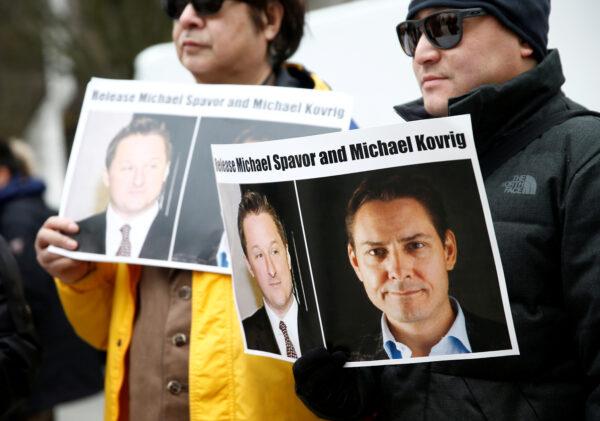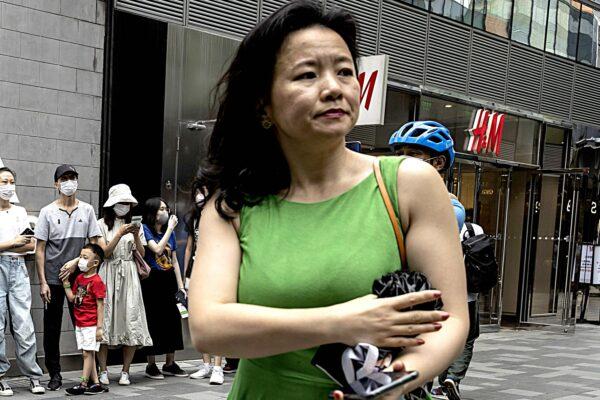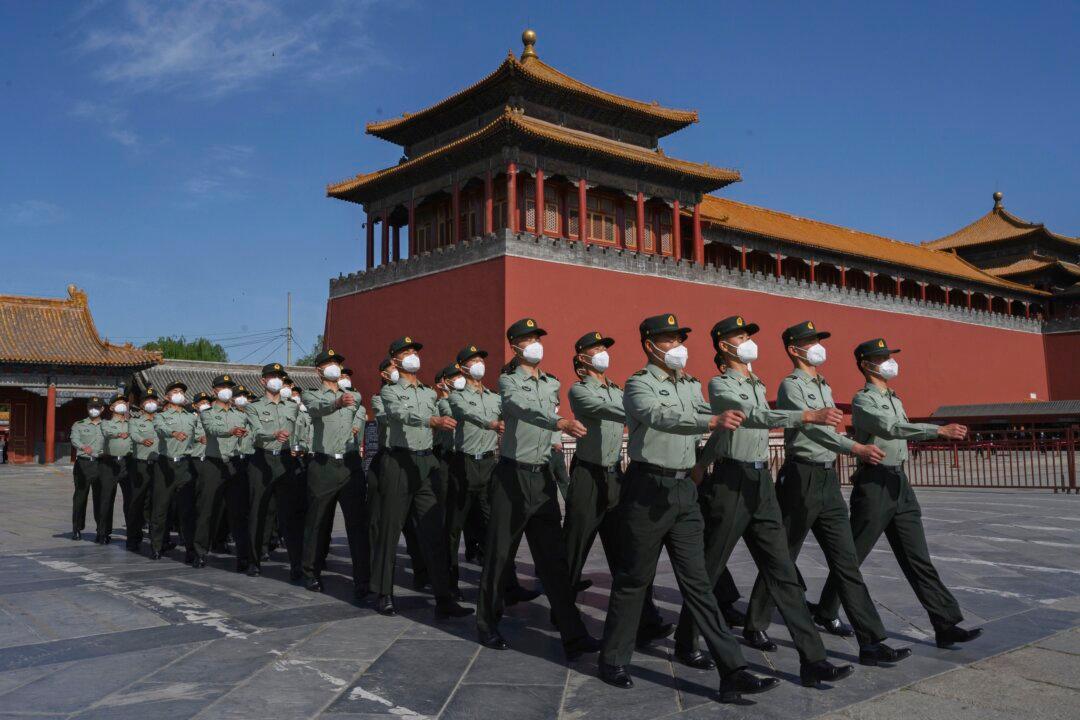In a new travel advisory, the British government has warned its citizens that foreigners should be aware of the risk of arbitrary detention in China.
“China’s authorities have under certain circumstances detained foreigners citing ‘endangering national security,’” the British Foreign Office said in its latest advice on traveling to China.
“National Security is interpreted broadly and you may be detained without having intended to break the law,” the advisory stated.

People hold signs calling for China to release Canadian detainees Michael Spavor and Michael Kovrig during an extradition hearing for Huawei Technologies Chief Financial Officer Meng Wanzhou at the B.C. Supreme Court in Vancouver, British Columbia, in Canada on March 6, 2019. Lindsey Wasson/Reuters
“There is also a risk of arbitrary detention, including of British Nationals,” it warned.
The UK made no mention of the risk of arbitrary detention in its previous travel advisories for China.
A spokesman for the British embassy in Beijing said the advice had been updated to “clearly and factually reflect recent incidents,” though “the level of our advice has not changed.”
Hostage Diplomacy
The UK Foreign Office’s warning comes after a string of arrests of Western individuals in China, which have sparked concern among observers who believe the Chinese regime is engaging in hostage diplomacy.The United States, Canada, and Australia have already warned their citizens of the risk of arbitrary detention in China.

Michael Kovrig, a former Canadian diplomat, has been accused by the Chinese regime of stealing state secrets. International Crisis Group
After Meng Wanzhou, the CFO of China’s technology giant Huawei, was detained in Vancouver for Huawei’s violation of U.S. sanctions against Iran, the Chinese regime detained two Canadians, former diplomat Michael Kovrig and businessman Michael Spavor.
The duo were formally charged with espionage on June 19, in a move that is widely viewed as politically motivated.
Last month, Cheng Lei, a Chinese-born, naturalized Australian citizen who had worked as a host of a business show on the Chinese state-owned network CGTN, was detained in China for “carrying out criminal activities endangering China’s national security.”

Cheng Lei, a Chinese-born Australian journalist for CGTN, the English-language channel of China Central Television, attends a public event in Beijing on Aug. 12, 2020. Ng Han Guan/AP Photo
Earlier this month, the Australian government evacuated two journalists from China after a tense diplomatic stand-off.
After Chinese officials banned them from leaving the country, Bill Birtles from the Australian Broadcasting Corporation (ABC) and Mike Smith from the Australian Financial Review (AFR) spent five days sheltering at diplomatic missions until they were allowed to leave.
Victoria Kelly-Clark, Eva Fu, and Reuters contributed to this report.





